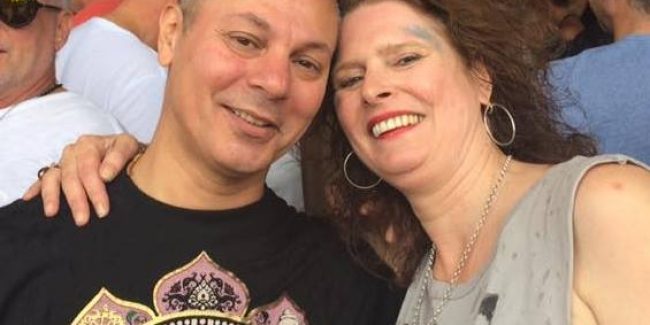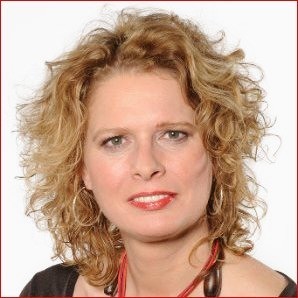This post is also available in: Nederlands (Dutch)
We met at Thuishaven, where UK-garage pioneer Groovemaster Johnson was performing. He’s been living in The Netherlands since he was a teenager. Of course, I asked him about his unique first gig story. “Innocent me was freaking out over a small bag of weed."
“Some of the most vivid memories of my childhood in Britain have to do with music. Often when I hear old classics, I think back to the fair, or how I would listen to the radio or watch Top of the Pops, while, when no one was looking, I would dance like crazy. My parents rented out rooms and one of our guests was a Jamaican musician. I was hugely impressed when he played riffs on his keyboard. I was clearly passionate about music even then.”
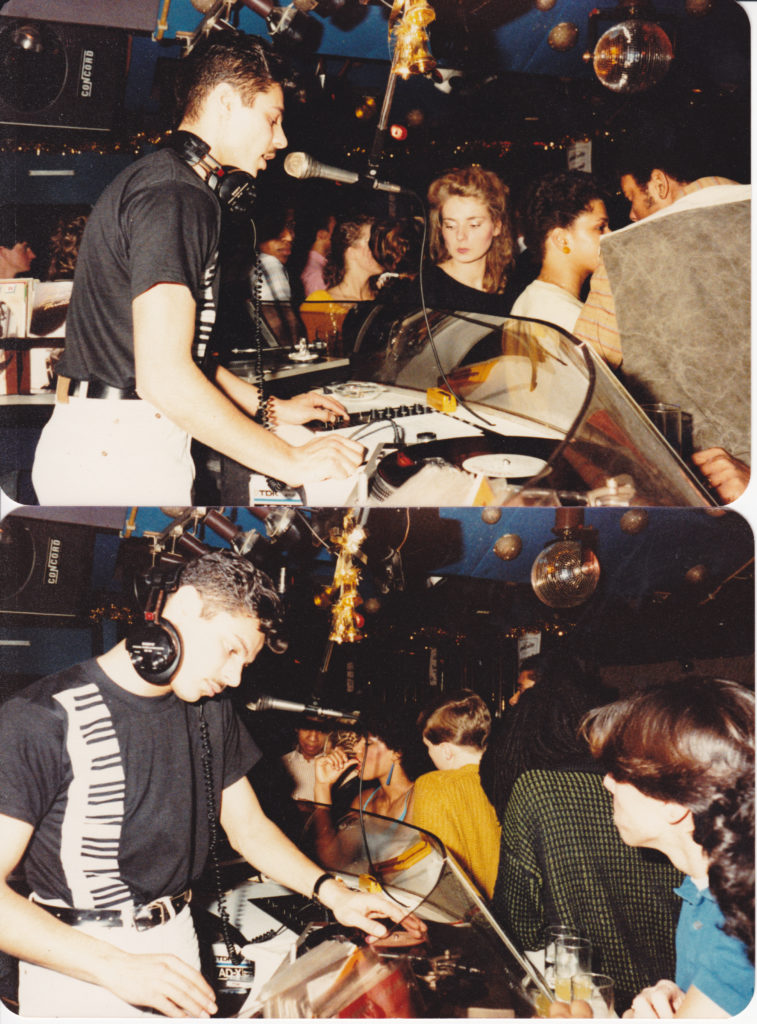
Crates of vinyl
“Years later, after we moved to Amsterdam, I wanted to throw a party for my sweet sixteenth. I was introduced to a professional DJ who lived nearby. We soon became friends. I asked if I could borrow some festive lights and never expected him to show up with his complete sound system and two cases of vinyl. Suddenly we had a DJ.” (laughs) “He then attacked me with the question if I wanted to play as well.”
Not a conscious choice
“His question completely freaked me out because I had never even thought of playing records myself. Vinyl was the standard at the time. I only had thirty or forty albums, mostly funk and jazz-funk, and I didn’t have a single 12-inch. However, that night I had so much fun that it inspired me to play more often. Think of school parties, birthdays, and weddings. And so, I slowly developed into a DJ. It was never a conscious choice but initially a hobby.”
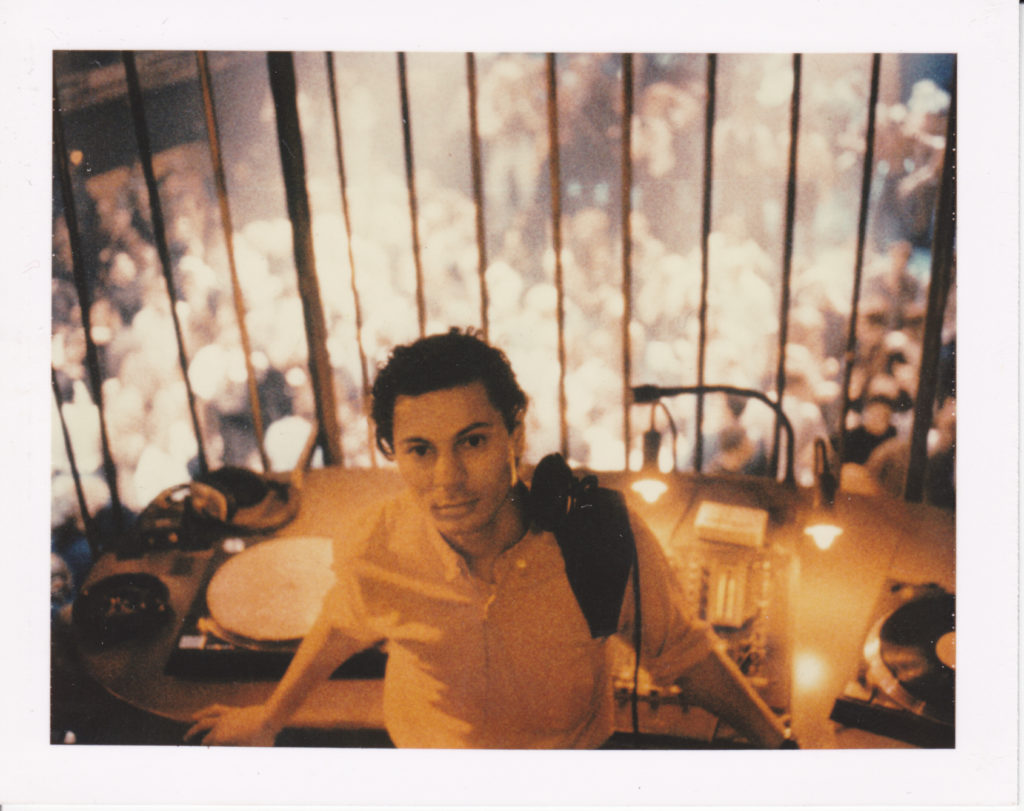
Fade in, fade out
“My first professional gig came my way when I was asked to play weekly in a club on Friday nights and Sunday afternoons. Mixing nonstop to the beat wasn’t very well known back then. That didn’t come until a few years later. We’re talking ‘fade in, fade out’ transitions. At the same time, I was speaking energetically through the microphone. A bit like radio DJs.” (laughs) “By the way, the talking was the scariest part. Sometimes I would write down sentences in advance and practice with these.”
Serious bad boy club
“By that time, I was nineteen and I was playing reggae, funk, boogie and jazz-funk at a club on the third floor of the Rothaanhuis in Amsterdam. At one point I was asked to play at the Commodores Funk Palace on Warmoesstraat as well. Phew, that was some serious bad boy club. Sometimes I played together with another DJ. Thank goodness, because I liked to take a hit from a joint every now and then.” (laughs)
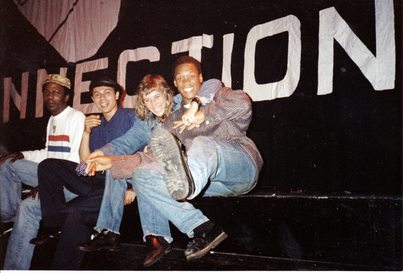
Police with batons and dogs
“On one of those nights, the weed was just a little too strong, so I spent two hours sleeping in a corner behind the DJ booth. The DJ I was playing with continued with mine after his own set. I was still such an innocent kid that I had no idea what was really going on behind the scenes in that club. That is, until the police unexpectedly burst in one evening, fully equipped with batons and dogs. Only later did it become clear to me why everyone was running like crazy to the toilets downstairs, while innocent me was freaking out over a small bag of weed.” (laughs) “When I think back on it, I still find it particularly funny.”
Spinning in between reggae bands
“During that period I also started to listen to roots reggae, salsa and other world music styles. I arranged three bands for an open-air reggae event in Amsterdam’s Bijlmer, and I played reggae for Amharik Sound System myself. In the reggae scene, a DJ is then called the ‘selector’. Soon the Melkweg asked me if I wanted to play in between the performing reggae bands and after. I also performed at some salsa parties.”
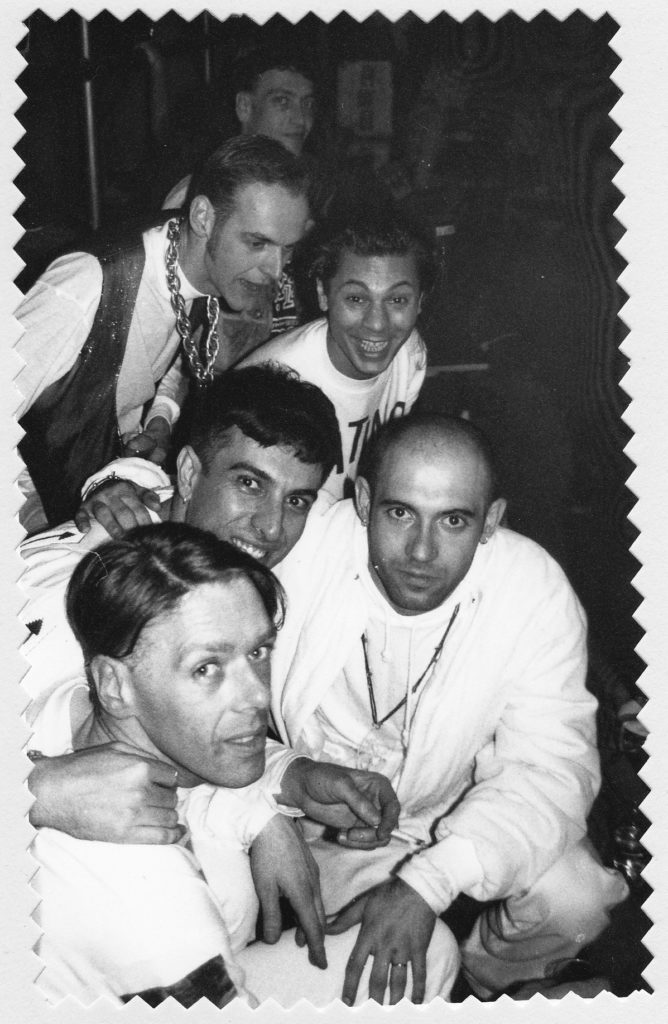
Successful at Richter
“I am convinced that all these genres have influenced my DJing in the following years. When I became frustrated that I wasn’t standing being behind the turntables somewhere on a regular basis, I started organizing parties myself at various venues. Among other things, I put on three events at Richter in Amsterdam. These were so successful that I could start working there every Sunday and within three months the place was full every week. This led to another residency, at Club Havana on the second floor. At the same time, I continued to organize my own dance parties at other venues.”
Manager tap dancing world champion
“I was quite active in those days. For example, I set up Upstage Unlimited. This was a booking agency for international street and club dancers. I had a permanent line-up of four groups that regularly came over from the UK to perform at my own events, including the Brothers in Jazz. The IDJ Jazz Dancers from London performed at the opening night of the RoXY. This in turn led to more bookings for regular club dancers at the RoXY. During this same period, I became the manager of Marcel Peneaux, who was a two-time world tap dancing champion. He later became one of the stars of the Dutch production The Cotton Club which also featured Ruth Jacott.”
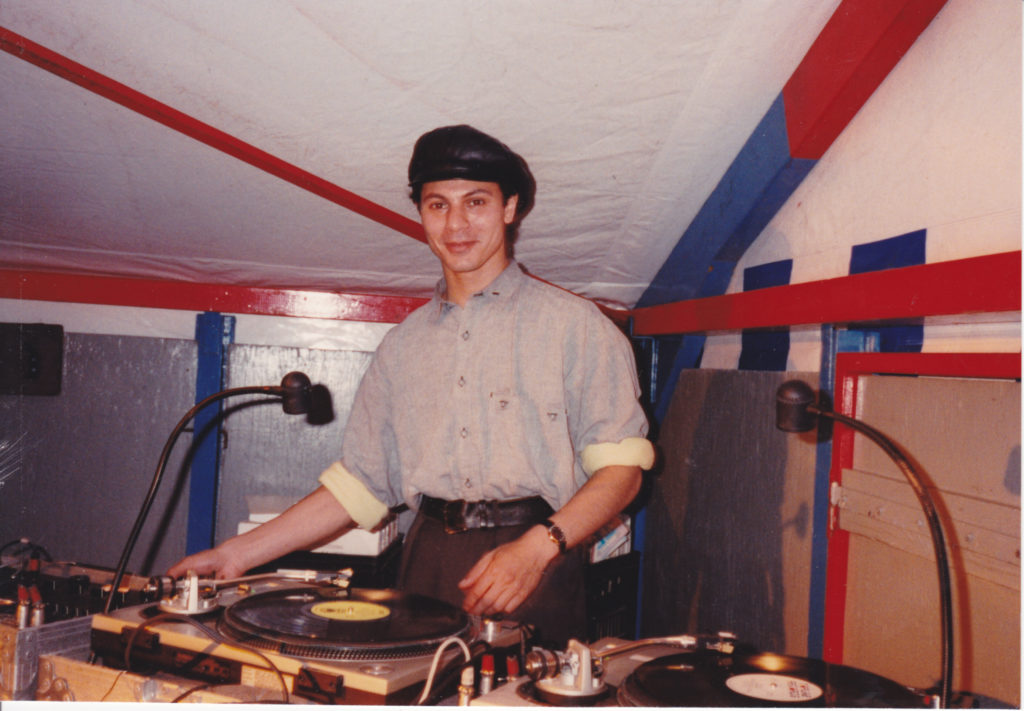
Everything in the London style
“Also Soho Connection (set up by Maz Weston, DJs Paul Jay & Graham B and myself) had by now established itself as a unique party organization in the Netherlands. We did everything UK-style: we usually had two or three dance rooms, all with their own genre (read: jazz-dance, house, weird grooves). In addition, we printed flyers and huge posters with the DJ line-up. This was something that didn’t happen much in the Netherlands at the time. Both the Dutch media and the English ID-Magazine got wind of it and wrote about our organization. We then brought our concept to all kinds of locations throughout the Netherlands. We also worked together with English warehouse party organizers Family Function and Shake ‘n’ Fingerpop. I saw five hundred Londoners come along with DJ Norman Jay for one of our ‘London Comes To Amsterdam’ weekenders.”
Only two toilets
“Soho Connection and house music were increasingly going hand-in-hand. Although we were successfully pushing musical boundaries, at the same time we were learning an enormous amount about organizing parties. I’ll never forget the time we had a warehouse event in a huge warehouse on the Levantkade in Amsterdam. There was more than enough space for three areas: reggae, weird groove, and acid house, which attracted about two thousand people. I had made sure there were portable toilets, but I had forgotten to apply for a permit for the connection at the municipality. So, in the end we only had two toilets. We also didn’t have a decent system for entrance and entry fees. I won’t go into all the details, but I remember the four of us spending a week trying to get the warehouse presentable again afterwards.”
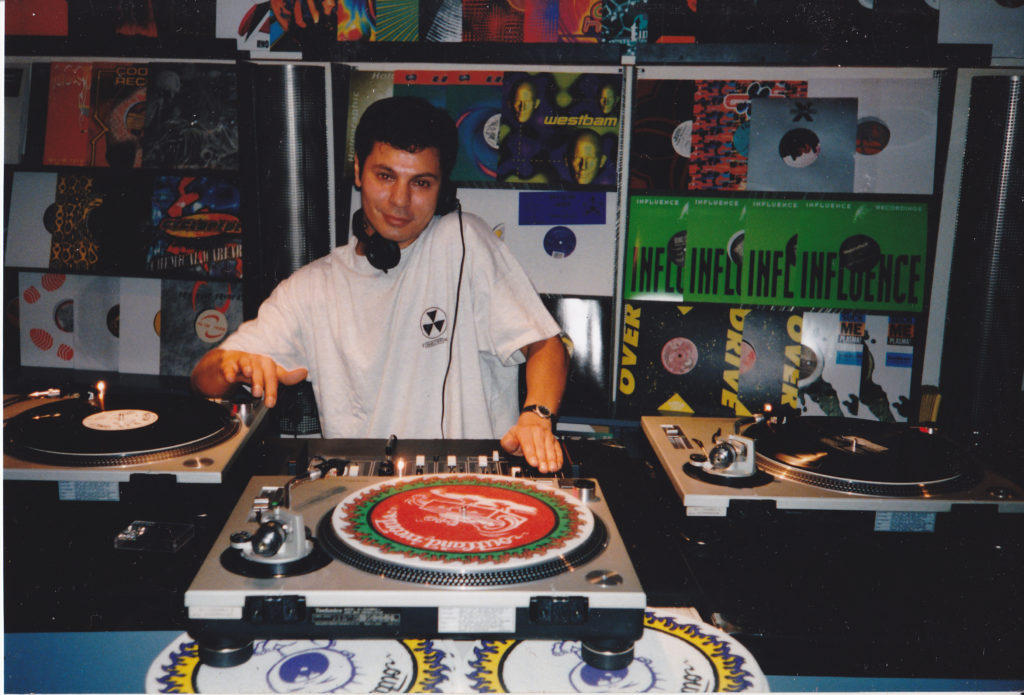
Sold Out RoXY
“After that, house really took off. A week later, the RoXY was sold out. In the meantime, some other creative minds had also set up organizations such as Dept. Store from Amsterdam and 12 Channels from Utrecht, all with the emphasis on house music.”
The dumbest mistakes
“At some of the gigs back then I made the stupidest mistakes. When I was standing behind the DJ booth in Richter, I once thought the electricity had gone out. Until I figured out that I had taken the needle off the wrong record!” (laughs) “I really hadn’t noticed. When everything came to a halt, well, if the looks of the audience could have killed… I committed the same stupidity again during one of our Soho Connection events in Rotterdam. The venue was packed and when I dropped the needle back into the groove, the crowd went crazy. I even remember which track it was: Kraze’s The Party. Paul Jay then enthusiastically said to me: ‘This is the best thing you’ve ever done’.”
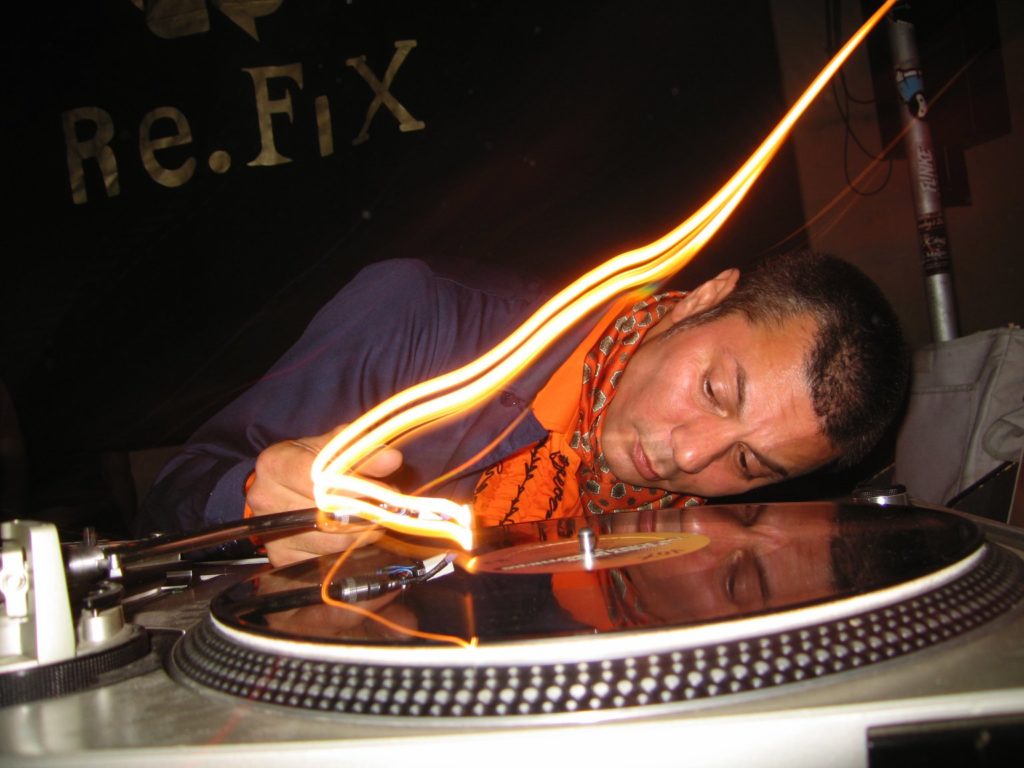
Eddy’s invite for Club RoXY
“The first house track I ever bought was Steve ‘Silk’ Hurley’s Jack Your Body, which I had heard at Eddy’s (Eddy De Clercq) PEP Club @at Paradiso. He played all kinds of styles, from house to Washington Go Go (funk). Eddy came to one of my events and six months later he asked me to play in Club RoXY. In the beginning, all house was soulful. The genre emerged from the seventies uptempo boogie and disco and developed in the late eighties mostly from the New York gay scene and also Detroit and Chicago. Detroit techno also had a soulful feel.”
Playing solo all night
“From the very beginning, Eddy, KC the Funkaholic and myself supported playing house at the RoXY. However, we encountered a lot of resistance. I remember mixing an a cappella over an instrumental track during my early days at the RoXY. I was super nervous and sweating profusely as I tried to keep the tracks in time. At the time, sets of five to six hours were the norm. That was fantastic because I could take the audience on a journey, which I created through the musical build-up, various highlights, unexpected tracks (for example: a cappella from a Cheech & Chong film), sometimes deep house for the last hour, and always an unforgettable last track. It wasn’t until the late 1990s that DJs started spinning shorter sets and entire line-ups emerged, with each DJ performing for just an hour and a half. By the way, Club RoXY was where I met Graham, Paul & Maz.”
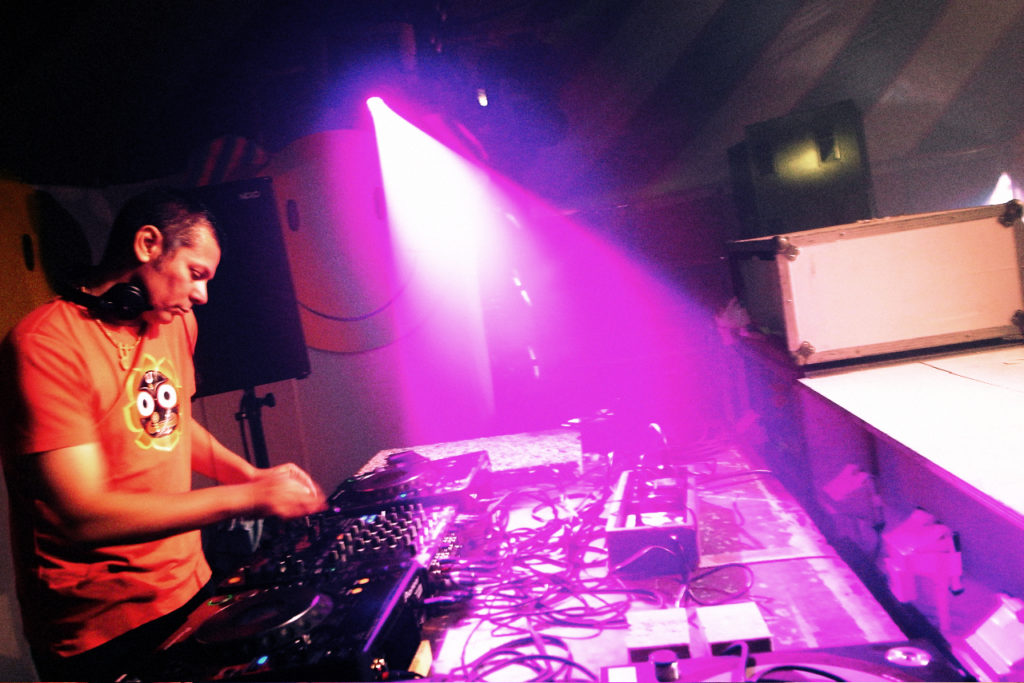
Bassline on Thursdays
“Club RoXY initially programmed several evenings with its own music style. KC and I hosted Bassline on Thursdays, where hip-hop and R&B (then called New Jack Swing) took center stage. After a year, these evenings came to an end. A few months later KC wanted to restart Bassline with me and although I was a big fan there were too many other ‘music’ projects going on. KC’s hard work and perseverance paid off, by the way: Bassline became a huge success in Paradiso. KC and Eddy are innovators and initiators, and all did their thing out of the love of music.”
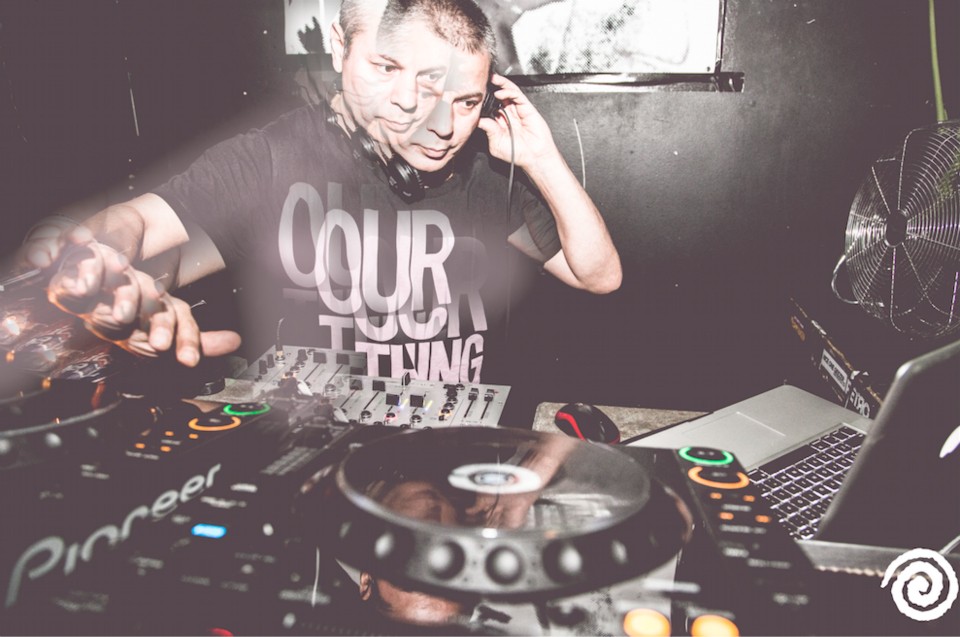
First release at TINK! Records
“I came in touch with producing when DJ Alex van Oostrom and a few others suggested time and again that I should get started myself. TINK! Records came about in 1990 thanks to our first release, which I made with three co-producers and Wendell Morrison, a vocalist from New Jersey (USA). Frankie Knuckles raved about the track, Jam On It, which ended up selling 5,000 copies on vinyl. Partly because of this, I traveled to the United States and interviewed Steve ‘Silk’ Hurley for my radio show S.H.A.G. (Soulful House & Garage) on New Dance Radio. I met producers, record labels and DJs in New Jersey and New York. One of them particularly stood out to me, Mark Thompson. He was a huge inspiration to me. He mixed with three ‘real’ turntables, using a reel-to-reel tape recorder for FX and mixing demo tracks. Sometimes he also used a sampler. This man definitely influenced my style of playing. In the end we became good friends and I brought him to the Netherlands several times to play.”
Amsterdam's best-kept secret
“During my RoXY years I was a resident DJ at Club Havana ‘Upstairs’ at the same time. Here I unintentionally specialized in the more soulful side of house. Although it was a small, intimate club, it was also a special place that enjoyed international allure on an underground level. I called it ‘Amsterdam’s best-kept secret’. This was partly due to the atmosphere created by the music. This one appealed to both gay and straight audiences, men and women, black and white and everything in between. It was a bit like the legendary club Jackie 60’s in New York.”
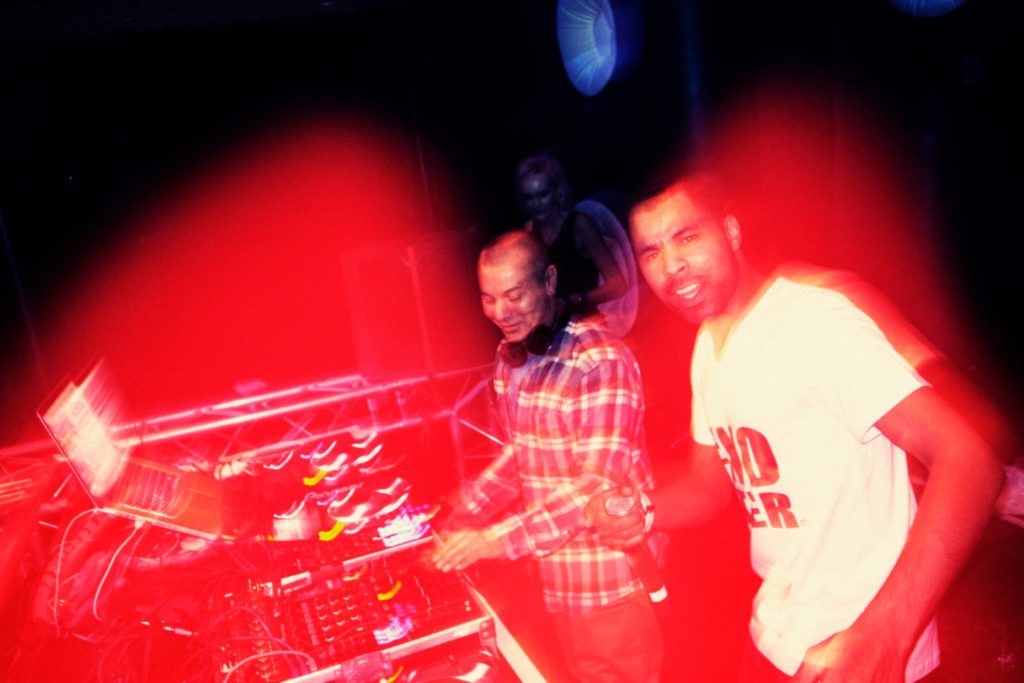
The soulful side of house
“Women loved Havana because they felt safe there. They could go out without being bothered. A completely new generation of drag queens and dancers emerged from Havana, such as The Funky Divas, Nicky Nicole, Covergirl, Martha and many others. Of course, I wasn’t the only DJ there. Raoul was a resident, as was Carlito, Cassie 6 had his Sunday afternoon jazz dance sessions called The Message and Natarcia created a strong group of loyal fans on the Wednesdays. Havana turned out to be a great alternative where the soulful side of house dominated, although it was difficult to play house in the beginning. I fed them bit by bit. Around the time Ce Ce Peniston’s Finally was released, the Havana audience was a little more open to house. I have released several compilation CDs, Upstairs at Club Havana (three volumes) and Soul Children. Two of them were recorded live at the club.”
Jungle nights
“Fast-forward to the late 1990s. House had evolved. Dimitri was an emerging star with his Hi-Tech Soul Movement, gabber was big in the south of the country and soulful house was and still is a niche in the Netherlands. Fridays at Club RoXY were all about jungle. A while later, Joost van Bellen, Quinten de Rosario, Ted Langenbach and I started ‘Glam’ at the RoXY. This evening focused on the soul side of house. After a year or so the night was stable but unfortunately, we saw no progress.”
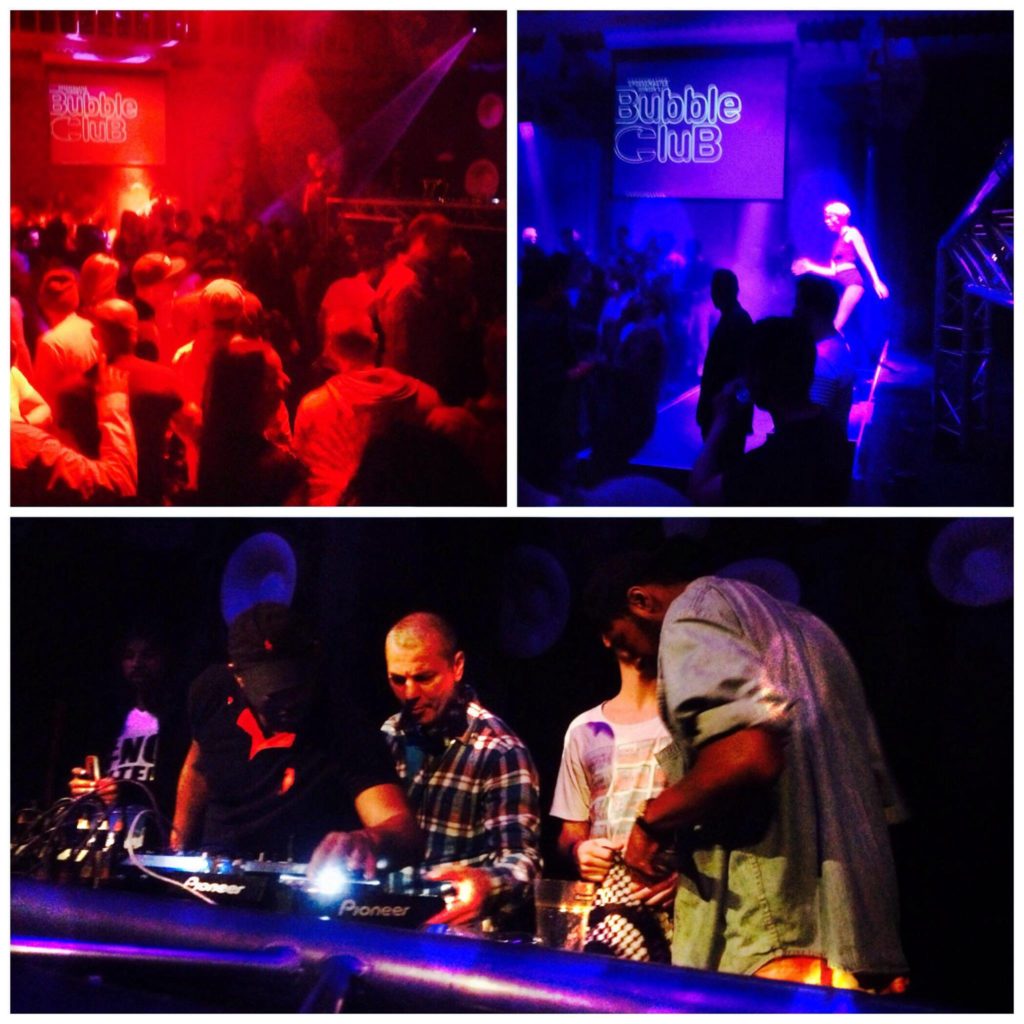
British undergound sound/UK Garage
“Because of my English background, the passion for bumpy grooves and fat basslines was anchored in my system. I was inspired by the British underground sound and experienced the UK garage and 2-step as a welcome relief. It wasn’t that I hated other styles. These were just fresh, new genres that I added to my collection. I wanted to try something new in Amsterdam. At first Club RoXY was a bit hesitant about taking a step into the unknown, but luckily DJ Per gave me the opportunity to try it on Time Machine, his concept in the Milky Way. My guest DJs were the English DJ Timmy ‘Boomkat’ and MC Spyder. This turned out to be a brilliant combination.”
Groovemaster Johnson's Bubble Club
“Just before the Melkweg event, however, Club RoXY suddenly saw the potential and decided to try it with me anyway. Et voilà, the Sunday Juice evening with UK Garage came about with me and Joost behind the turntables and Puck Verdoes who arranged everything. Timmy ‘Boomkat’ and Spyder were the guests at the opening. UK Garage was always supplemented by MCs and the regular Juice MCs were Vin-E, Ruff Nas, Spyder and Deadly. Around the same time, I introduced Groovemaster Johnson’s Bubble Club in Paradiso and within a year every edition was sold out. We started in the small room upstairs with myself as the DJ and Timmy ‘Boomkat’ and Spyder as my regular guests. In that time, I have released three more compilation CDs including Bubble Club, Urban Dance Floor and Speed Garage. The latter as a double CD, together with Joost.”
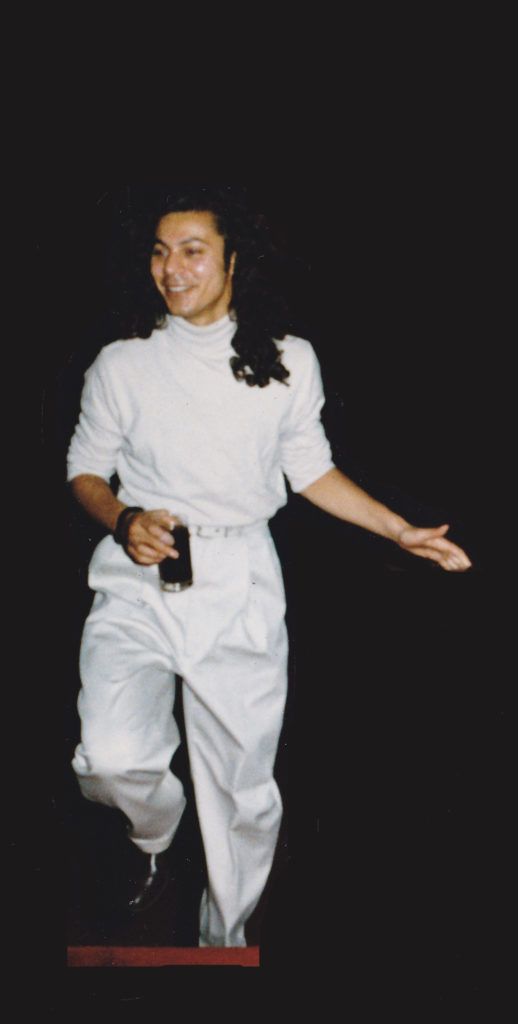
The Emperor of the Amsterdam Groove
“How did I come up with the name Groovemaster Johnson? Well, when I had just arrived in the Netherlands, my nickname was John. I have an Indian name that few in the Netherlands can pronounce. After my debut on my own sixteenth birthday, I became good friends with a Surinamese boy, Purcy. His uncle was a DJ and Purcy wanted to follow in his footsteps. One day he asked me to play with him at his uncle’s event. His uncle announced us: Purcy as Mr. Pokoe and I suddenly became Mr. johnson. However, when I later organized events myself, I was embarrassed to use ‘Mr.’ and just turned it into DJ Johnson, even when I was playing in the RoXY. At the Juice events, when Joost and I played together, we announced each other. He always called me ‘The Emperor of the Amsterdam Groove’. Months later, the RoXY had a basketball theme, and the creative department gave all the DJs a typical nickname. That’s how Joost was called ‘Magic van Bellen’ and, you guessed it, I was nicknamed ‘Groovemaster’ Johnson’.” (laughs)
Bubble Club crew
“Bubble Club started to become quite successful and without the Bubble Club crew I would not have made it. I could really count on them. They arranged everything in the background, from lighting to decor to publicity, transport, DJ set-up and dismantling and the sound check. They kept an eye out so I could focus on the musical side of things. By the way, I met MC Vin-E at our first Bubble Club. He was MCing at the Drum & Bassline theme downstairs at the time. Within a few months the upstairs room was so full that we moved to the main room. In the upstairs room I programmed the Belgian Supreme Team to play hip-hop and R&B.”
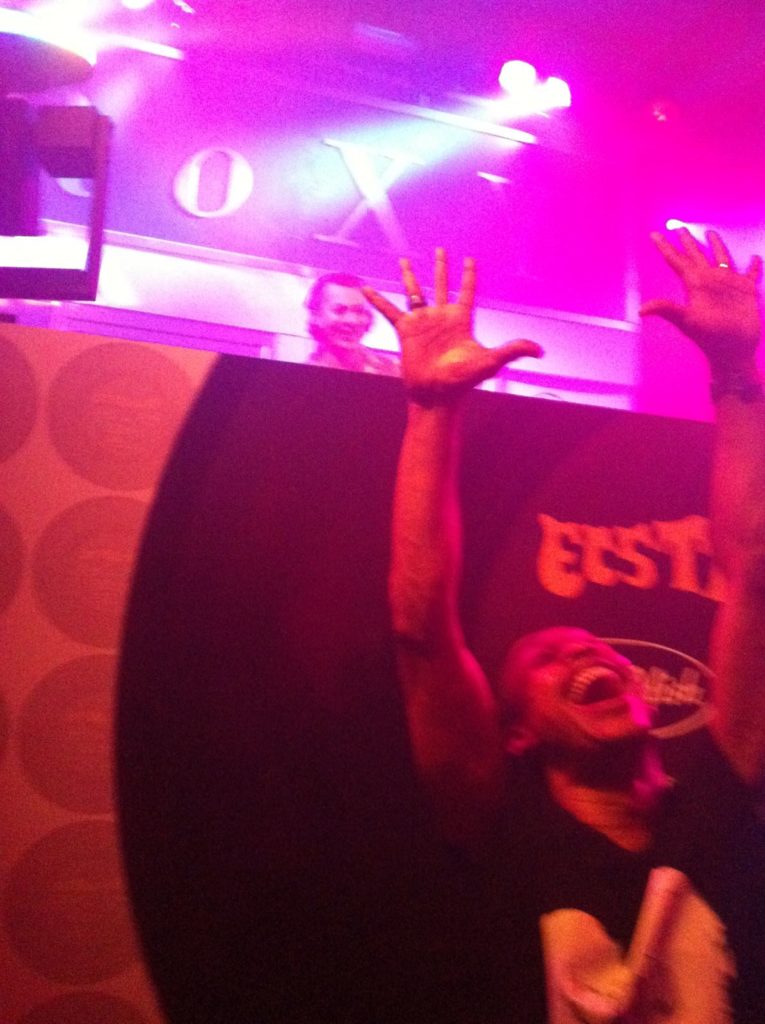
Even in NEMO
“The Supreme Team’s spinning and rapping style was quite unique in the Netherlands at the time. They were a talented club who added some spice to the evening. I always booked dancers through Jake’s Dance Factory. This is how the so-called Bubble Club Dancers were born. They were fantastic! As the Bubble Club became more and more popular, I partnered up with the brothers John & Roger Oliviera. They saw the big picture, were particularly innovative in the field of the latest technical gimmicks and, above all, made a major contribution to logistics. I only had to deal with programming. Together with Paradiso we took the Bubble Club to another level. We have organized Bubble Club on a three-deck boat in science museum NEMO and regularly on the beach in Bloemendaal. We also visited the now defunct Rotterdam Nighttown. Plus, we had a long list of British artists, DJs and MCs as special guests.”
UK garage DJ
“The flip side of becoming popular with just one genre of music is that you’re labeled ‘house’ DJ or ‘UK garage’ DJ. A few fellow DJs were even disappointed in me for going that route. However, there is so much more than just one style. For example, when I spin during Rollerskate gigs, I can spin anything that fits the groove, new and old. I like to play in one style but to be honest, it’s a lot more challenging to work with a wide selection.”
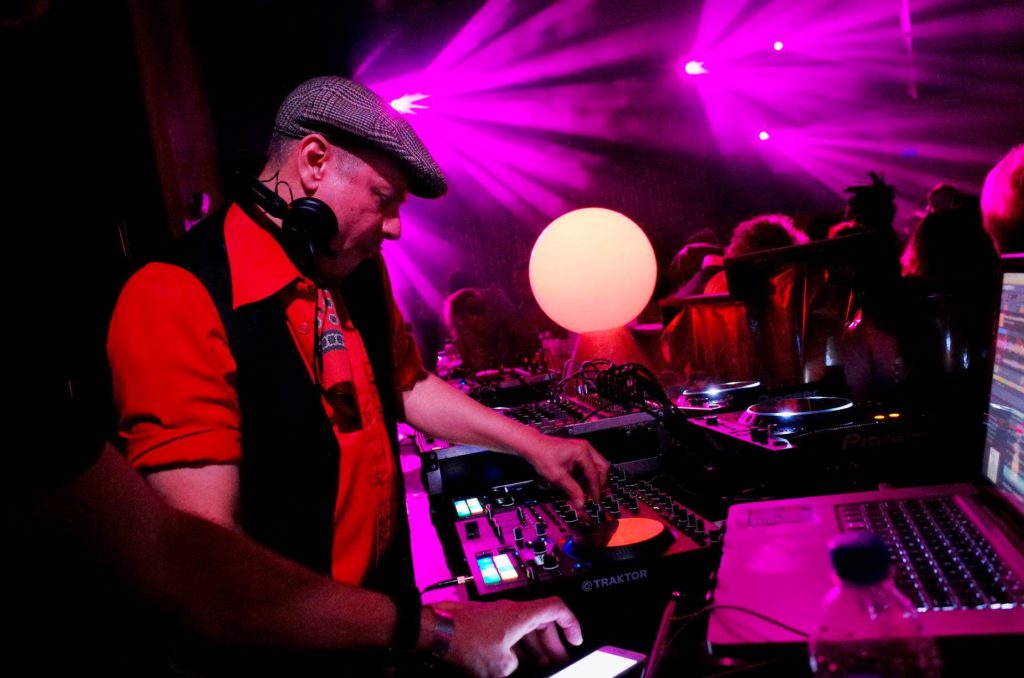
No time for followers
“I also have a passion for jungle, breaks, grime, newer soul and what is now called afrobeat. Well, even all those genre names are hard to follow. If desired, I mix new, old or various genres or just one style. The most important thing in the creative branch is motivation by having fun. I know that to be a popular DJ these days, you need to have a large group of followers on Twitter, Instagram, Facebook and so on. I really don’t have time for that. Moreover, does one’s measure of success really rest on these things? What defines success anyway?”
Always positive
“For the past eight years I’ve been immersed in electronic global grooves and music with a spiritual twist. Think a bit of music that you hear during the Burning Man festival in the United States. In addition, you can think of influences from my musical past with a passion for singing from the soul, deep rolling, driving or grimy bass lines, rousing rhythms with a heavy cadence, percussion, spiritual lyrics and modern or traditional keys. In addition, I make sure that any text is positive.”
“We currently live in a world full of contradictions and disagreements. Love, peace & harmony is what the world lacks at the moment. Positive music could help people become more aware. Change is what the world needs now! This immediately reminds me of a classic from the seventies, The Isley Brothers with Harvest for the World.”
This article is originally published in October 2017 on DJMag.nl.
Photo credits Valtifest, Bubble Club Reunion, Refix: Andy Tan
